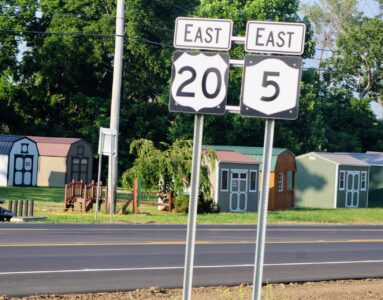Generosity may be tested in school votes

OBSERVER file photo Two high school football teams pictured here represent five county schools. Silver Creek and Forestville battle Cassadaga Valley, Maple Grove and Falconer, in dark uniforms. If sports are so easy to merge, why can’t districts?
Do area communities continue to have an appetite for tax increases? While the north county has taken the brunt of the recent hits — specifically the municipal spending plans for the city of Dunkirk and village of Fredonia — are other voters throughout Chautauqua County worried or just unaware before the annual school budget votes that take place Tuesday?
Usually it is the latter.
Of the 18 districts here, spending plans have not been defeated since 2019 when Clymer residents turned down a proposal that would have raised taxes by 13.9%. Since then, proposals for the last five years have been approved with most happening overwhelmingly.
For all the banter residents offer regarding criticism of high taxes, consistent approvals do nothing to lessen the burden on homeowners or renters. It also signals to the business community that despite shrinking student enrollments, this region is still a long way from looking to be more efficient and lean.
According to Albany budget projections, state aid to all of the 18 county districts for next year total $357 million — from $95 million in Jamestown to $7.3 million in Ripley. All the other 16 districts are in between. Overall, the total price tag for educating 16,641 students tops $450 million — and that does not even begin to take into account the Board of Cooperative Educational Services spending, which is more than $35 million.
Additionally, Silver Creek and Forestville district voters will be deciding on approving a new tax for the Anderson-Lee Library. If passed, those funds will be used to support operations at the entity.
This week, there was an indication of some faint hope that smaller districts will see the light in consolidating. Clymer, Panama and Sherman — a powerhouse name when it comes to recent football championships — could all become greater partners when it comes to enhanced programming and learning for their students.
As noted by reporter Sara Holthouse, voters in these districts will not only cast their ballots Tuesday on budgets — they will also be asked to weigh in on an important question about the future of education in their communities. The three will include the same exit poll survey at their polling sites, giving residents a chance to share their thoughts on whether the districts should begin formally exploring the potential of consolidating into one unified school district.
“The exit poll question is being asked in response to ongoing challenges that many rural school districts are facing, including declining student enrollment, rising operational costs, and the need to broaden academic and extracurricular offerings for students,” Clymer Superintendent Beth Olson said. “The Boards of Education from each district are seeking community input on whether to move forward with a feasibility study — the critical first step in a lengthy and carefully regulated process toward potential consolidation.”
Westfield Academy & Central Schools has not put the merger issue on the table, but it has been proactive when it comes to staffing. Over the last two years, school board members have eliminated positions through attrition. Last year, it did not hire a second-grade teacher after a retirement and this year it decided against filling a kindergarten position.
“With declining enrollment trends, utilizing attrition to manage staffing levels is a more strategic and less disruptive approach than direct cuts,” said Interim Superintendent Shelly O’Boyle.
Dunkirk schools, which is increasing spending nearly $2 million, will not hike taxes since the city rate increased 84% this year. Fredonia, which will see property taxes rise more than 62% when the village bills come out later this summer, is projecting a 2.6% school hike if approved.
Residents in neighboring Pennsylvania, however, are part of the Warren County School District. Its budget for next year is $93.9 million — or 21% of the total Chautauqua County cost.
There is no tax increase planned, but the school board made a difficult decision in January. It decided to close high schools in Sheffield and Youngsville. That means only two remain — Warren Area High School and Eisenhower in Russell.
Warren County does not vote on its budget and the decision to reduce buildings was highly contentious in a 5-4 vote by the school board. Declining enrollments and rising costs drove what some consider an unpopular choice there.
Nationally, inflation continues to be a major concern though recent indicators are signaling that prices are coming down in some sectors. In New York state, a school budget defeat does not mean the plan does not go into effect. It means a portion of the budget — about 2% — is reduced.
Though that number represents a soft slice of the expenses, it does send a louder message that is almost just as significant. Spending needs to be reined in — and it needs to start now.
John D’Agostino is the editor of The Post-Journal, OBSERVER and Times Observer in Warren, Pa. Send comments to jdagostino@observertoday.com or call 716-487-1111, ext. 253.






